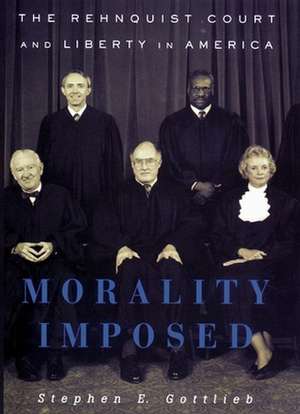Morality Imposed – The Rehnquist Court and the State of Liberty in America
Autor Stephen E. Gottlieben Limba Engleză Hardback – 31 aug 2000
Preț: 587.57 lei
Preț vechi: 763.08 lei
-23% Nou
Puncte Express: 881
Preț estimativ în valută:
112.43€ • 117.63$ • 93.40£
112.43€ • 117.63$ • 93.40£
Carte tipărită la comandă
Livrare economică 02-16 aprilie
Preluare comenzi: 021 569.72.76
Specificații
ISBN-13: 9780814731284
ISBN-10: 0814731287
Pagini: 320
Dimensiuni: 152 x 229 x 15 mm
Greutate: 0.64 kg
Ediția:New.
Editura: MI – New York University
ISBN-10: 0814731287
Pagini: 320
Dimensiuni: 152 x 229 x 15 mm
Greutate: 0.64 kg
Ediția:New.
Editura: MI – New York University
Recenzii
"In this well-written and carefully documented book Professor Gottlieb contends that the conservative direction of this court is so strong that it is impossible for the poor and less fortunate to receive proper consideration and, ultimately, redress."
--New York Law Journal
--New York Law Journal

























